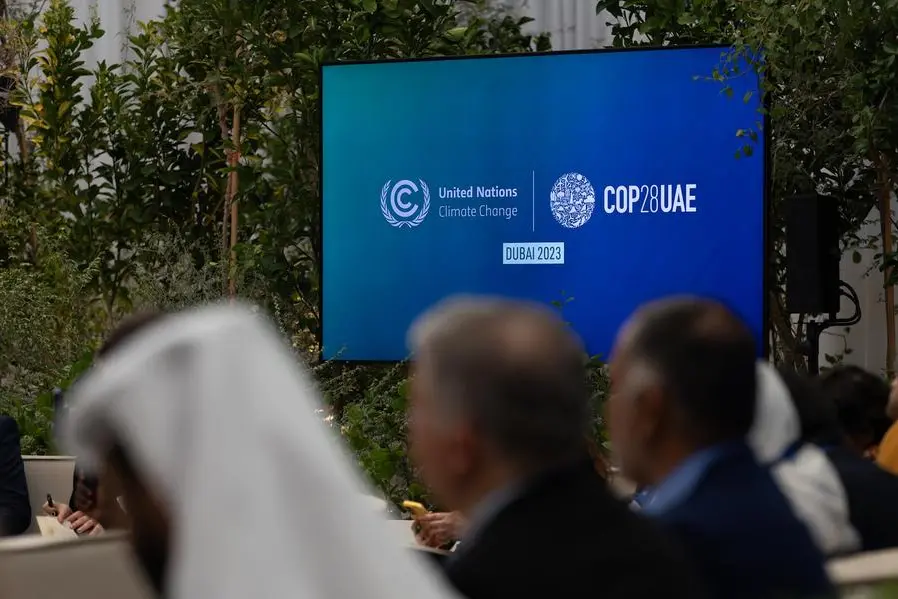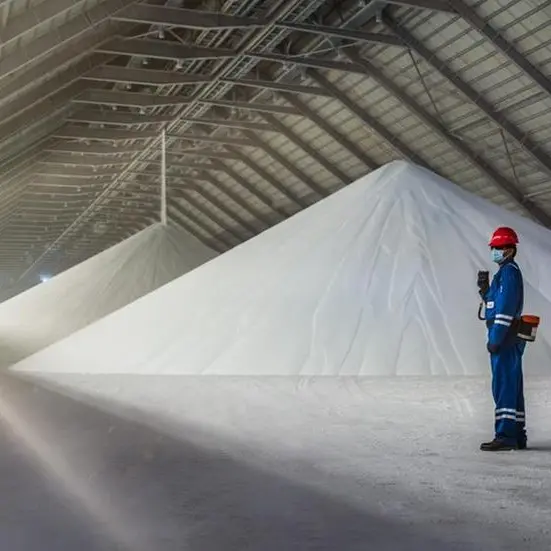PHOTO
Climate campaigners and activists seemed energised by the new draft text of the Global Stocktake, which was released in the morning hours today, with some calling it a “step in the right direction”, while others said it heeded a dire warning that the end of the oil and gas industry was near.
“The latest draft is a clear indication that there’s an urgent need to transition away from fossil fuels, and that if adopted, countries have a collective responsibility to work towards that goal. That’s news and that’s unprecedented,” Romain Ioualalen, Global Policy Manager, Oil Change International, told Zawya.
“This has only been possible after years and years of campaigning, in particular by the Pacific Island states for whom, moving away from fossil fuels is a matter of survival.”
According to Ioualalen, what undermines the message in the text is “talk of transition fuels, which is coded language for natural gas. That means fossil fuels and that needs to be phased out as well.”
But the climate expert remained upbeat. “What this draft text implies is that the writing is on the wall for the oil and gas industry, and they know the future is in renewable energy. This text makes it clear as it talks about tripling renewable energy capacity by 2030, which will be an exponential increase around the world. And it also says very clearly that renewable energy is cheap, is affordable and can be made more affordable for developing countries, especially African nations living in energy poverty.”
An earlier draft of the UN Global Stocktake text drew criticism from many climate groups, after it used language such as ‘reducing’ instead of a ‘phase out’ for fossil fuels. A new draft, which released today, tightened the wording by using ‘transitioning’ in the context of fossil fuels, while also shed more clarity on adaptation finance.
Andreas Sieber, Associate Director of Global Policy and Campaigns at 350.org, a global environmental organisation, also said the text was a “big step forward,” which sends a “clear signal that we need a rapid decline away from fossil fuels in the next decade.”
He continued: “What is still missing is the clear long-term decision to phase out fossil fuels. However, I think what is important in particular with regards to the urgency is that are we are looking at is a signal to kick off the next decade.”
Sieber also remained positive on how the draft text mentions adaption finance, which puts the needs and interests of developing nations in writing.
“The text acknowledges the needs for a broad-based finance structure. It also underscores the need to support the transition in developing countries,” he said. However, the climate expert remained caution on the draft not “providing the concrete steps to deliver such finance. That is the next big ask. Developing countries looking to phase out fossil fuels need urgent support with finance, and you need to put in place measures to deliver this.”
Catherine Abreu, Founder and Executive Director, of climate strategy firm Destination Zero, also seemed positive about the clarity on the financing, telling Zawya: “We got a refence to the scale of investment that’s needed in order to drive up the clean energy. It says every clearly that money needs to provided in a highly concessional way, and a grant-based way.”
But she also had her reservations, stating: “What we are missing, however, is an indicating of who needs to provide that finance and it needs to be developed countries with the most emissions.”
Abreau added that ultimately the draft was a step up from the previous text and it was largely due to countries “who very clearly stood up to the challenge and to civil society who, in the public discourse, were saying this is not good enough.”
While many were seen looking upbeat in the aftermath of the text, people like Gerard Arances, Executive Director at the US-based Center for Energy, Environment and Development, remained cautious.
“In the context of fossil fuels and finance, yes, the text has been a step in the right direction, especially from the previous decade, but for many of us living in Asia, ambiguity in wording could mean a death sentence,” he said.
“We need to keep 1.5C at the heart and that means a phasing out of fossil fuels, and developed countries taking the lead, in a just and equitable manner. And that’s our position.”
The Philippines national added that anything less would “condemn many communities in my country. At 1.5C, we are already losing 70-90% of our coral reefs. This is mind-boggling for us because we depend on marine resources for our livelihoods. The issue on the sea-level rising could wipe out islands. There are many repressions to the loopholes in the text and they need to be addressed before anything is accepted.”
(Reporting by Bindu Rai, editing by Daniel Luiz)
bindu.rai@lseg.com





















